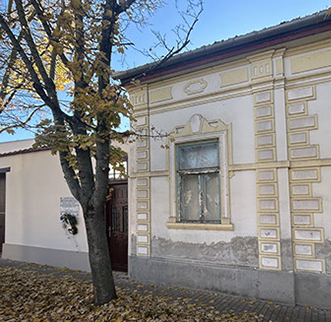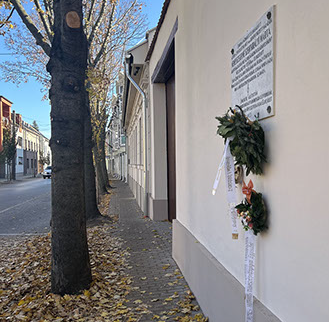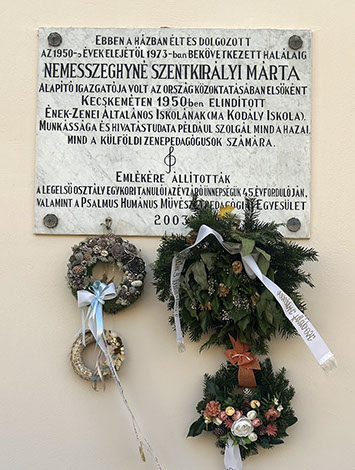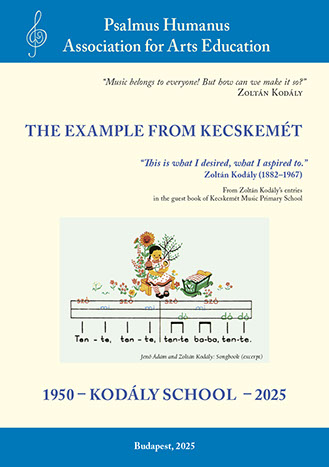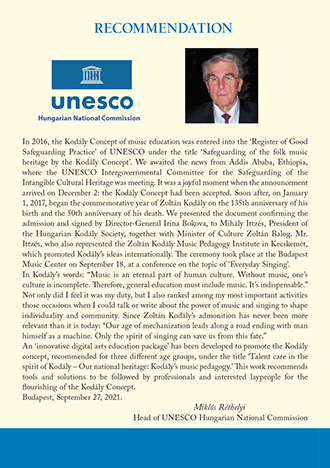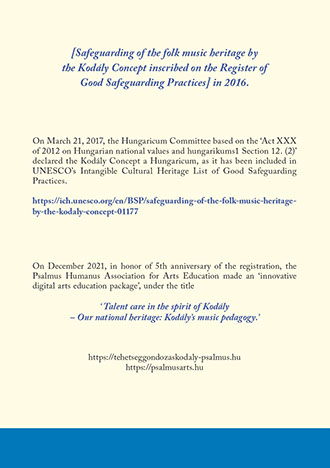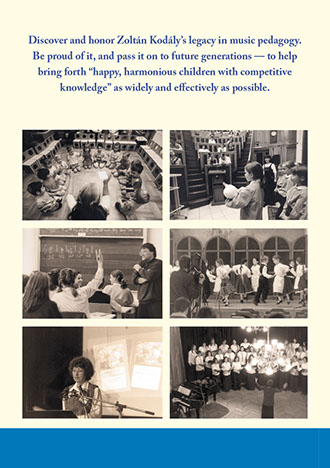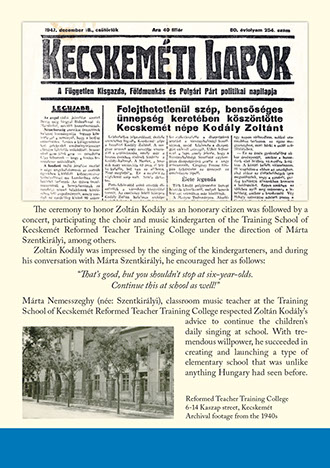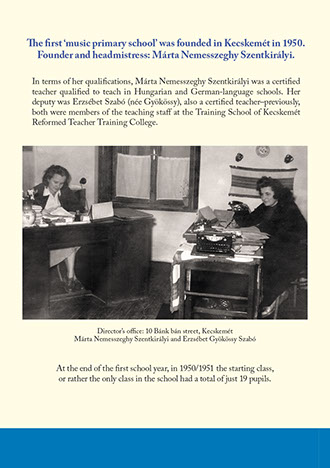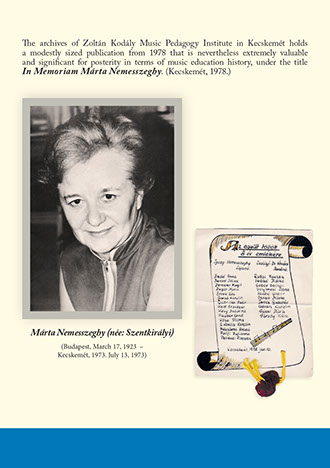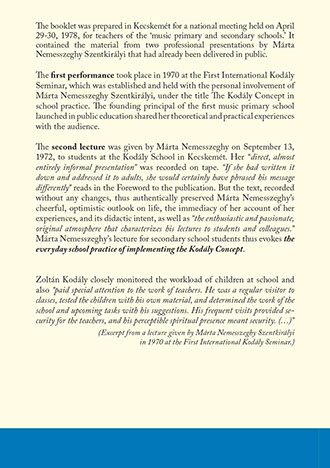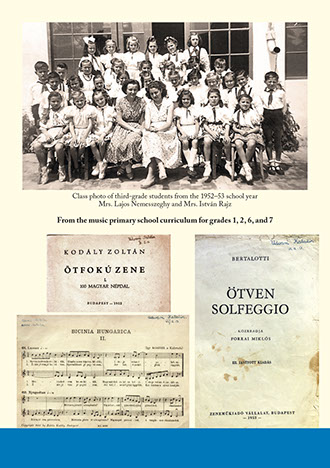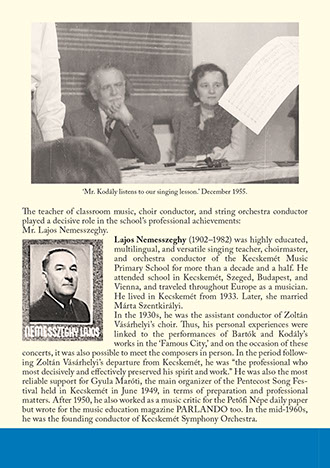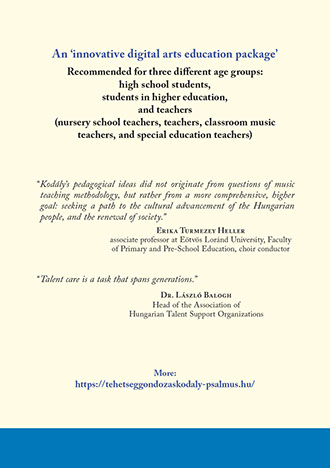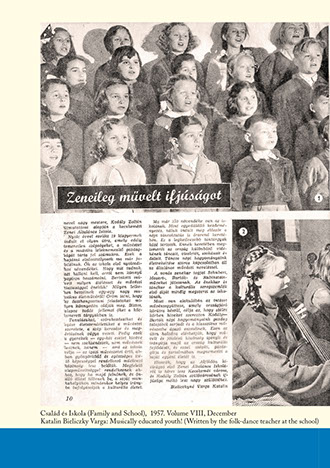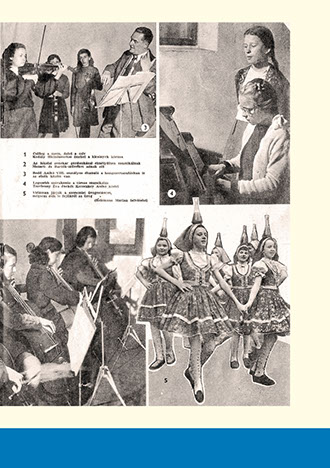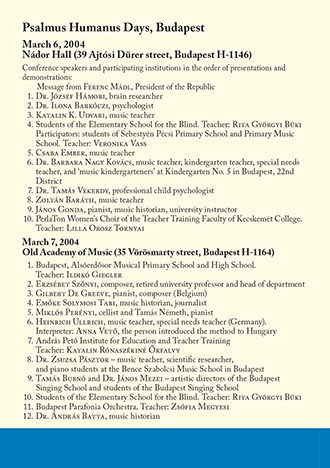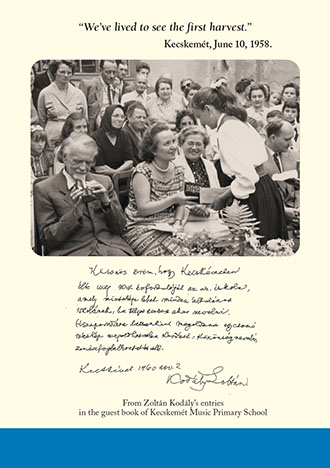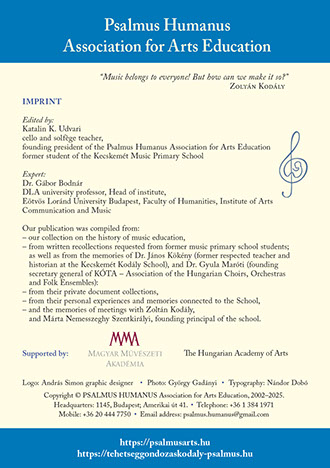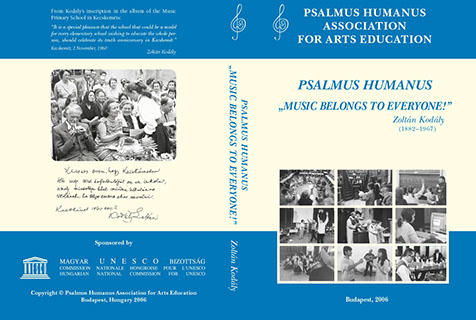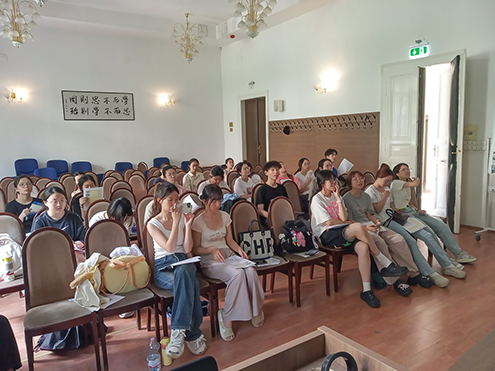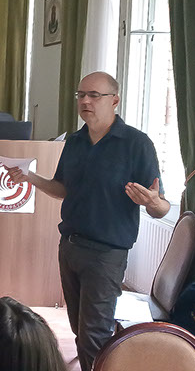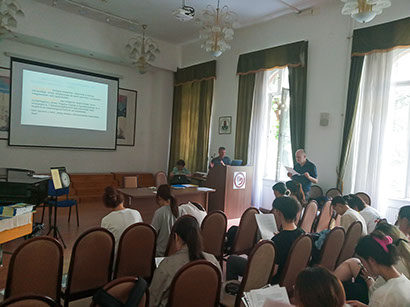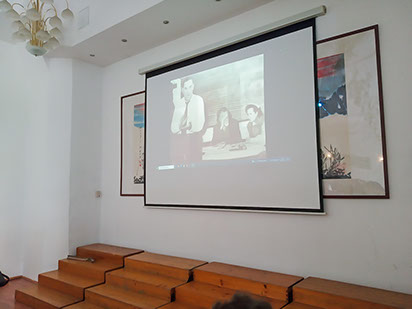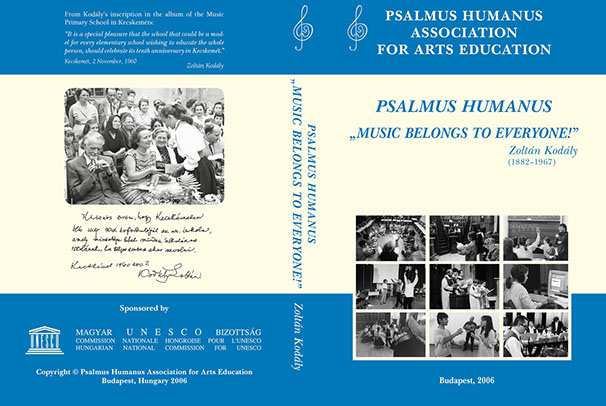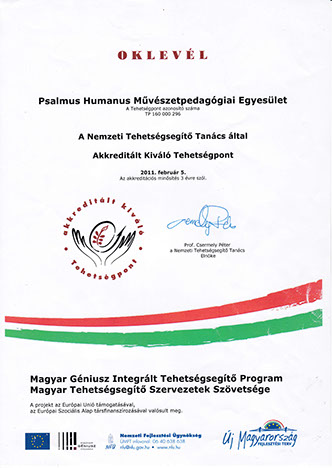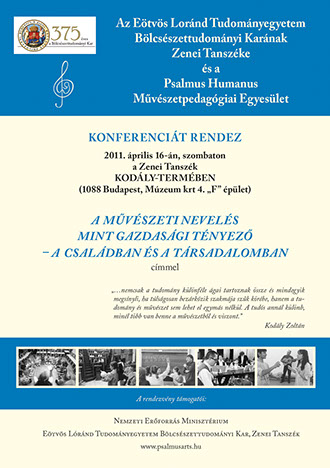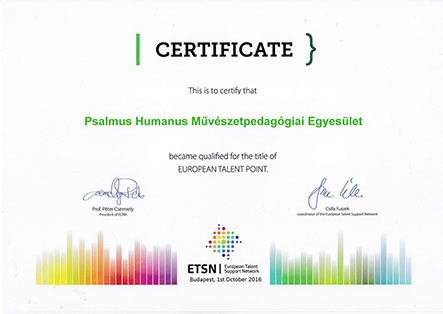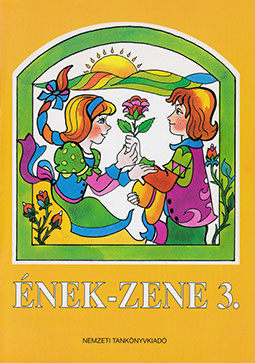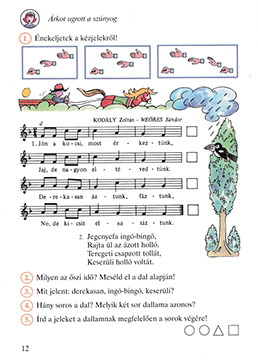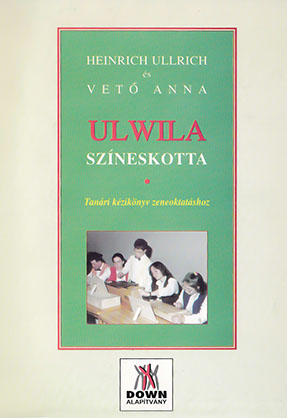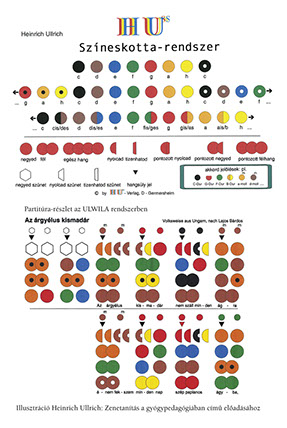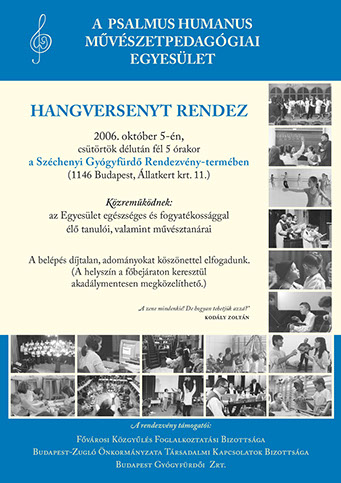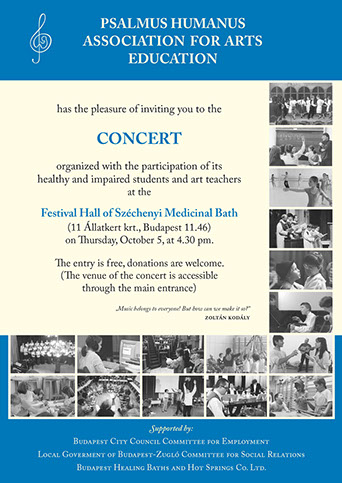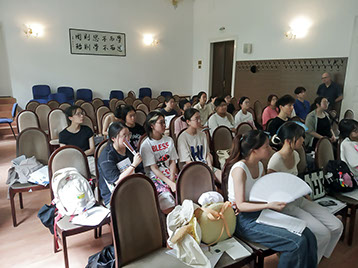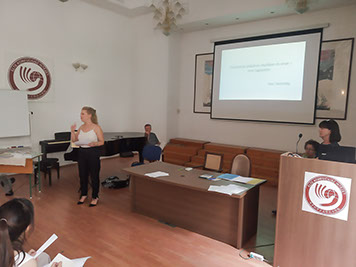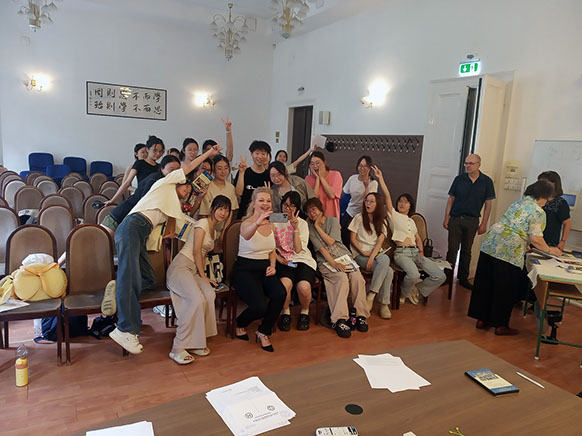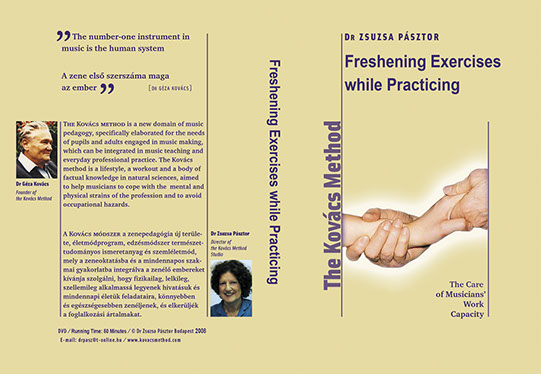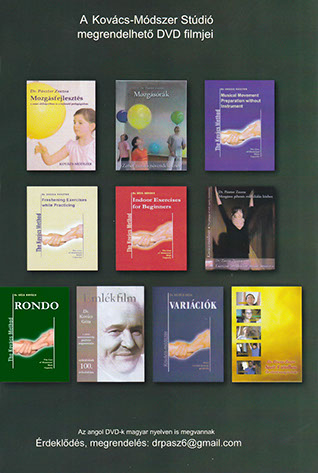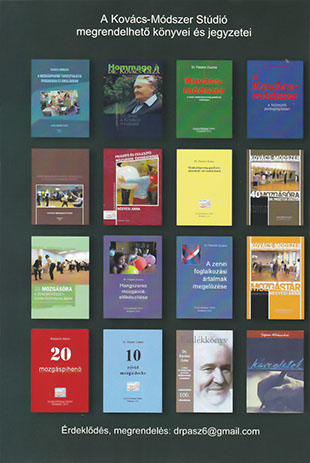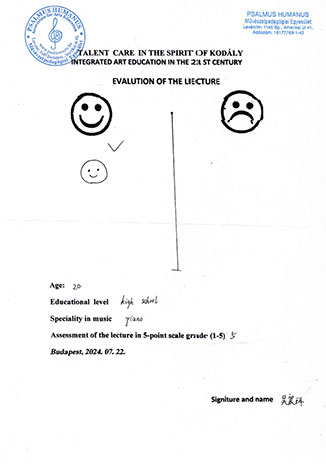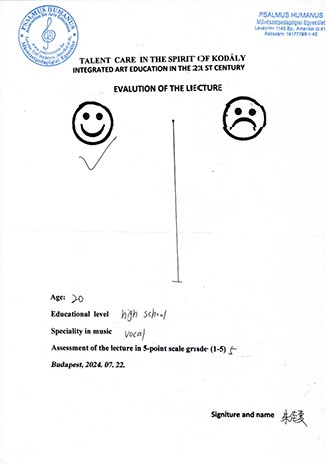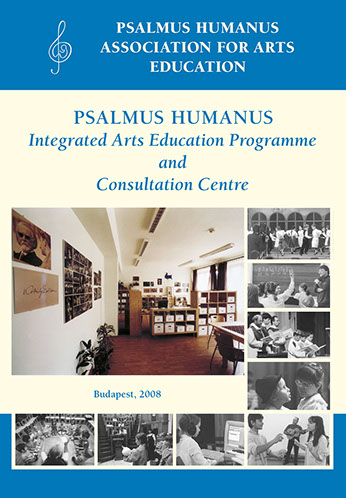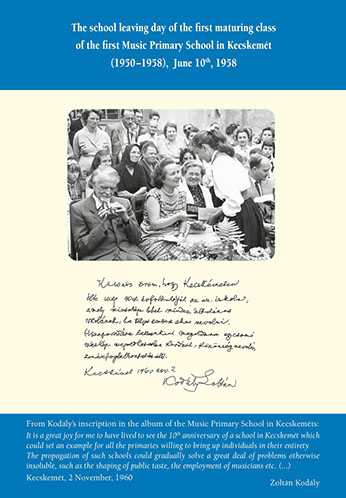Copyright © PSALMUS HUMANUS Association for Arts Education, 2002–2024.

PSALMUS HUMANUS
Association for Arts Education
Supporting by:
Updated: 25 Nov 2025.
Ministry of
Human Capacities
Hungarian
Academy of Arts
LATEST NEWS
Events of the year 2025
75 years ago, the first
Kecskemét Singing and Music Primary School
(now known as the Kodály School) was founded.
We respectfully remember the school's founding principal,
Mrs. Márta Nemesszeghyné Szentkirályi,
and we remember the school's first day of classes:
Kecskemét, October 27, 1950.
In Memory MÁRTA NEMESSZEGHYNÉ SZENTKIRÁLYI (1923-1973)
♦ ♦ ♦ ♦ ♦ ♦
We remembered Zoltán Kodály
interview with a Radio 1 Gong in Kecskemét
its editor-host, radio host Zalán Vizi
The interview was aired on Radio 1's Gong MAGAZIN program on April 27, 2025.
https://radio1gong.hu/visszahallgathato/2025/04/kodaly-zoltanra-emlekeztunk
We would like to contribute to the celebration of the 50th anniversary of founding the Kodály Institute in Kecskemét, Hungary, mentioned in the radio interview by presenting our book “Psalmus Humanus” Tradition and innovation in Kodály's music education („Psalmus Humanus” Hagyomány és megújulás a kodályi zenepedagógiában). We would like to invite the co-author of the publication, Prof. Dr. Gábor Bodnár to this event, who is a board member of our association and Director of Institute of Arts Communication and Music (Faculty of Humanity, Eötvös Loránd University).
The book is expected to be published in late August/early September and is planned to be around 500 pages. The publication is complemented by Psalmus Humanus Art Pedagogical Association's DVD series: Psalmus Humanus "MUSIC BELONGS TO EVERYONE!" Zoltán Kodály (1882-1967), Psalmus Humanus "LA MUSIQUE APPARTIENT A TOUT LE MONDE!" Zoltán Kodály (1882-1967), Psalmus Humanus "DIE MUSIC BELONGS TO EVERYONE!" Zoltán Kodály (1882-1967), in honour of the 125th anniversary of the birth of Zoltán Kodály, is complemented by a 60-minute sound recording.
The following short film was produced by the Municipal Television of Kecskemét about the events of the “Professional Day” (Kodály School, 7 March 2022) presented in the interview. A report on the “Professional Day” can also be found in the 2022/4 issue of www.parlando.hu Talent Development in the Spirit of Kodály. Professional Day in Kecskemét, at the Kodály School” on May 7, 2022 (Psalmus Humanus Art Pedagogical Association) (Tehetséggondozás Kodály szellemében. Szakmai nap Kecskeméten, a Kodály Iskolában 2022. május 7-én (Psalmus Humanus Művészetpedagógiai Egyesület).
Psalmus Humanus Art Pedagogical Association's DVD series (2007):
Events of the year 2024
Chinese music university students visit Budapest
The Kodály Concept in the 21st century: an integrated arts education program
Eötvös Loránd University Faculty of Humanities, Institute of Arts Education and Music, 22-23.07.2024
The lectures and presentations in English were hosted by Gábor Bodnár, Professor and Head of Institute. He highlighted the successful cooperation of the Institute for Arts Education and Music and the Psalmus Humanus Association for Arts Education over almost a decade and a half, including teacher training courses, foreign and national lecture tours, jointly organized conferences and lecture series. He also mentioned that the current summer university course is another opportunity to continue and renew the cooperation, as there has never been an opportunity to present the program at such an event. He also expressed his hope that the event, which started this year, could be repeated annually, creating a tradition. In this hope, he gave the floor to the representatives of the Association.
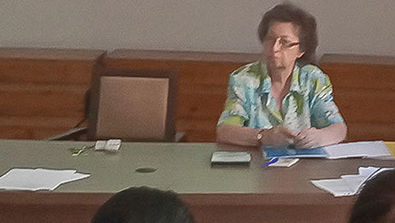
1) Katalin K. Udvari founding president of the Psalmus Humanus, Special Prize for Arts Education of the MMA (Hungarian Academy of Arts) Section of Arts Theory, former pupil in the very first class of the Music Primary School, Kecskemét. She launched the Kodály Concept in the 21st Century lecture series, under the title “A presentation of the Association's activities”.
“Music belongs to everyone! But how can we make it so?” (Zoltán Kodály 1882-1967)
The Association is a registered NGO in the field of public education in Hungary. The purpose of its activities is education and awareness-raising. The members represent a broad spectrum of arts education, from kindergarten to university. Most of them belong to a generation who, although from their childhood, still have personal experiences of Kodály's music education.
To illustrate the work of the Association, we first showed details of the 60 minutes of our English language DVD film “Music belongs to everyone! But how can we make it so?” (Zoltán Kodály 1882-1967).
We have documented the success of the Association's integrated and talent-centered arts education work with the following selected certificates and invitations:
– Diploma: Psalmus Humanus Association, Accredited Talent Centre 30-hour integrated teacher training program (2011)
– Certificate – European Talent Point: International registration for our talent care program (2016):
Preparer of the digital material for the presentation: József Pető engineer, IT specialist, opera singer, member of the Association.
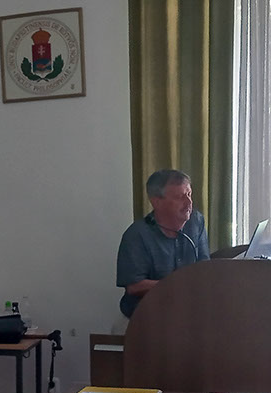
2) Pál Kaibinger special education teacher, classroom music teacher, textbook author, member of the Association
Lecture on “Music teaching in special needs education”
Music education in special education for pupils with special needs (SNI), its importance and impact.
The majority of pupils with special educational needs in Hungary (72%) learn in an integrated way: not in separate, segregated, special schools, but in majority schools. The accurate diagnosis is very important in special education work (abilities and characteristics of the pupils: intellectual disability, sensory impairment, speech impairment, autism, behavior disorder, possibly combined disorders). This is followed by specific, personalized therapy for successful reintegration into society, rehabilitation.
Music education in special education: The Kodály Concept, the curriculum and the number of lessons is similar to the majority schools. But the qualifications of the teachers, the number of classes and the distribution of the curriculum are different. There are more therapeutic options, so more opportunities and possibilities for personalization, by the possibilities of music education.
The importance of music education: It provides emotional development, which also improves memory; gives a sense of achievement, relieves disadvantage, helps integration.
Talent care: “elitist” approach. Promoting excellence and a social approach: compensating for disadvantage, every child can be talented in something.
We need to focus on the child's strengths and build developmental tasks around them: the learners' experiences of success can provide motivation and support the development of weak areas. (Dr. Tamás Freund: Playing music, acting, dancing, poetry, creating artworks develops and enriches our inner world.)
Examples of musical talent with special educational needs:
Williams syndrome, autism: music is a very good therapeutic tool for them.
Specialized scoring system: color score, no line staff, colors indicate pitches.
Rhythm marking: geometric form (circle)
Very good results, common music-making in lessons, appearance of orchestras.
The above festive event has been announced as follows. The Psalmus Humanus Association of Arts Education organizes a Festive jubilee concert on 13 December 2007 Thursday afternoon at 4.30 p.m., in honor of the 125th anniversary of Zoltán Kodály's birth, in the Event Hall of Széchenyi Medicinal Bath Budapest. (Állatkerti krt. 11. H-1146 Budapest, the venue is accessible via the main entrance.) Contributed by the healthy and disabled pupils, and the arts teachers of the Association. The concert will be followed by a short DVD film screening: “Music belongs to everyone” (Zoltán Kodály 1882-1967). Our publications in Hungarian, English, French and German, supported by the Hungarian UNESCO Commission and the National Cultural Fund, are available for purchase on the spot.
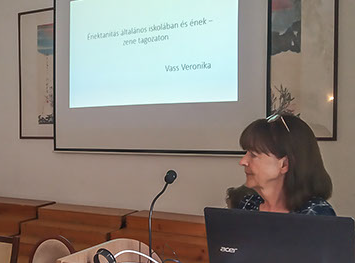
3) Veronika Vass, teacher of pedagogy and classroom music, also a member of the Association, gave a lecture and a short presentation about the so-called “Singing Schools” – special elementary schools focused on music education. She discussed the multi-directional and life-changing positive impact of these “everyday singing” schools. Additionally, a short film titled “The Music-making house” was shown, offering insight into the daily life of the Sebestyén Pécsi Primary School of Music Education and Arts.
The House playing Music - short film (Zenél a ház)
Sebestyén Pécsi Primary School in Budapest for Classroom Music and Arts
Teacher: Veronika Vass
In our teaching of our music-focused curriculum, we apply the traditional methods of the Kodály Concept, which include:
• Considering Hungarian folk music as the foundation of the curriculum.
• Progressing from folk-based Hungarian children's games to the masterpieces of musical literature.
• Utilizing relative solmization through hand and written gestures.
• Gradually transitioning from the relative to the absolute pitch system.
• Incorporating auditory perceptual exercises and writing practices into the curriculum.
• Integrating age-appropriate improvisation into the daily program.
• Prioritizing group singing, starting with unison and later moving to multi-part singing.
• Teaching children to play the recorder during lessons.
• Introducing the great works of music literature in an age-appropriate manner.
Young children still require lots of movement and play (e.g., folk song games, improvised or structured movement to music and singing). It is recommended to use percussion instruments and various visual aids during lessons, such as “melody puzzle”.
Children who initially struggled with singing in tune were also admitted to the school, but with five music lessons per week, they quickly caught up with their peers (this has rarely been achieved with just two lessons a week).
Learning to read and write music is not easy; gradual progression and playfulness are essential. Matching hand signs to body parts has proven to be effective practice (e.g., LA on top of the head, SOL on the forehead, MI under the chin, RE on the neck, DO on the chest, and later FA on the nose). Experience shows that if children practice this way, it becomes easier for them to navigate the musical staff later.
Singing should also be central to lessons for older children. The teacher must base tasks on the students' existing knowledge and incorporate creative exercises. A child’s interest in music class is greatly influenced by the teacher’s personality, expertise, and teaching methods. The assessment of classwork is mainly determined by the student's level of participation.
“During my work, I had the opportunity to observe the academic performance of children in special music classes compared to those following a traditional curriculum. Children who studied music intensively were significantly busier but typically achieved better results in both the sciences and the humanities. They were also more engaged, participated in more study competitions, and generally demonstrated greater creativity in their activities. Their lives were more vibrant filled with concerts, performances, and trips abroad. It’s no surprise that after some time, every child who applied to the school wanted to join the music class.” (Veronika Vass)
The presentation was translated and performed by the lecturer’s daughter, Ms. Fanni Sárközy, pianist and composer, former pupil of the school, co-director of the film, and a graduate performer from the Franz Liszt Academy of Music.
4) Dr. Zsuzsanna Pásztor pianist-teacher, university lecturer (Liszt Ferenc Academy of Music, Eötvös Loránd University), member of the Association made a presentation under the title “The role of the ‘Care of Musical Work Capacity’ in music education from lower to university level”.
The appearance of the so-called “Kovács Method” in music education is linked to the name of Zoltán Kodály. He was the first to draw the attention of the musical community to the importance of health care in the 1950s. Kodály quoted Robert Schumann in his speech at the closing ceremony of the Academy of Music in 1953. “Music is a life-threatening occupation. Many promising careers have been destroyed due to the neglect of the physical condition.” (At the time, there was a high incidence of serious occupational diseases among students and artists.) At Kodály's urging, the management of the Liszt Academy invited Dr. Géza Kovács, a researcher in physical education, to assist. This was the beginning of the pedagogy of “Care of Musical Work Capacity”. Kovács’s work is continued and further developed by his student and fellow author Zsuzsanna Pásztor.
The presentation focused on four main areas.
1) Easier and healthier learning and teaching, relieving fatigue, intermittent working. Introducing exercise breaks in music lessons and practice. Warm-up with moving before the performance to combat excessive stage fright.
2) Manual and physical preparation of instrumental playing in teaching beginners, correction of the mechanism for advanced pupils. The development moving program creates the neurological bases for instrument playing, frees up lots of time and energy.
3) Physical bases of talent care. Developing talent takes hard work, and this requires high load capacity. Therefore professional activities and the development of physical fitness must go hand in hand during talent care.
4) Tools of the Method for teaching children with special educational needs in music schools.
Exercise break during singing lessons, music lessons and choir rehearsals
Structure of exercise break
1.) Light arm movement
2.) Easy leg movement
3.) Easy trunk movement
4.) Intensive breathing-stimulating movement (heavier arm, leg or trunk movement)
5.) Calming movement (neck movement, breathing exercises, balance exercises, or light hand movements)
A “musical” way of life
1.) Sufficient sleep
2.) Movement training
3.) Movement in the open air
4.) The strengthening effect of sunlight
5.) Breathing training
6.) Proper nutrition
The theoretical information was complemented by fun and entertaining practical sessions. At the end of his presentation, the lecturer presented the participants different teaching aids in English related to the topic.
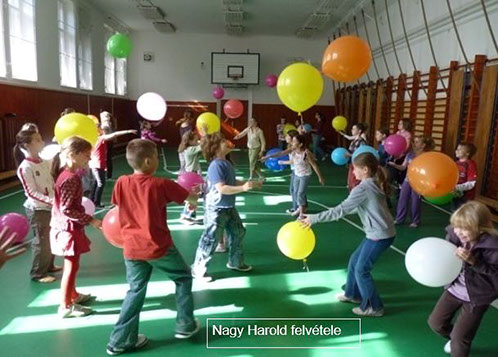
Before the start of the performances, we gave all the participating Chinese college students the translated table of contents from DVD “Music is for everyone! But how can we make it so?” (Zoltán Kodály 1882-1967).
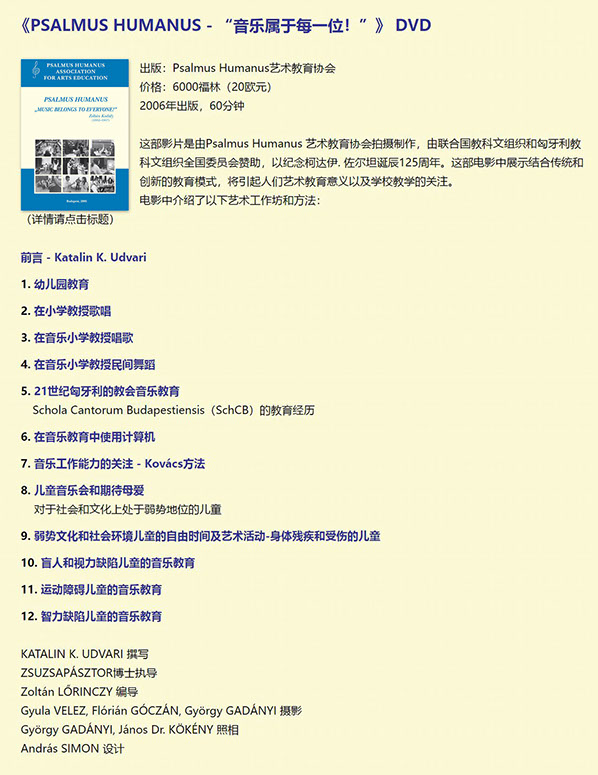
– we gave the participants a “EVALUATION OF THE LECTURE” sheet in English, asking everyone to fill it in: did they like or dislike the presentations, rating them with numbers from 1-5. To our great delight, the students expressed their liking on all pages, and everyone rated the lectures as 5.
We have attached 2 evaluation sheets.
– At the end of the visit, we gave it as a gift our English-language publication “PSALMUS HUMANUS Integrated Arts Education Programme and Consultation Centre” to the young Chinese guests of the ELTE Institute of Arts Communication and Music.
HOW WAS IT!?...
The first introduction of the Psalmus Humanus Association for Arts Education.
It was on March 6-7, 2004 in Budapest – 20 years ago – in the NÁDOR TEREM
Psalmus Humanus Association for Arts Education opened its Consultation Workshop
on April 28, 2008 with the support of UNESCO and the Hungarian UNESCO Committee.
You can read about this in the publication below.
Foreword: mr. Péter Gresiczki General Secretary, Hungarian UNESCO Committee
The Institute of Arts Communication and Music, Eötvös Loránd University (ELTE) Faculty of Humanities, and the Psalmus Humanus Association for Arts Education
announce a vocational training for Chinese school music teachers, kindergarten teachers and special needs educators; asking for the mediation of the Chinese UNESCO Committee.
(On the website www.psalmusarts.hu a Chinese language review about our professional activity is available.)
“Music belongs to everyone. But how can we make it so?”
Zoltán Kodály (1882–1967)
The title of the course is:
Talent Care in the Spirit of Kodály;
Training for Arts Communication and Music Culture
Duration: 3 weeks; maximum capacity of a group: 25 persons
Venue: Eötvös Loránd University (ELTE), Faculty of Humanities, Institute of Arts Communication and Music;
4/F Múzeum krt. Budapest, Hungary H-1088
Date: 15 April – 06 May 2020
Application deadline: 30. 11. 2019. e-mail:psalmushu@chello.hu
Program:
I. Introduction of the integrated arts education program based on the traditions of the Kodály Music Pedagogy
1. The main parameters of Kodály’s educating conception
2. Talent care for pupils with significant abilities
3. Developing of average abilities
4. Helping the integration of special needs (blind or partially sight and motor disabled) people with the methods of arts education
II. Training for Arts Communication and Music Culture
1. Music theory and solfège
2. Solfège and score reading
3. Vocal practice
4. Instrumental practice (piano)
5. Performance practice
6. Music history and music culture
7. Knowledge of organizing musical events
8. On an expedition – Experience-centered, interdisciplinary arts education in the Zugló Music House (Budapest)
III. Main educational methods in the practical activity
1. Methodical possibilities in the everyday teaching
2. Possibilities for the adaptation of the Kodály Method in the Chinese education system
3. Possibilities for the complex arts education in the extracurricular activities
4. Introducing some choir compositions from the Hungarian and European choir culture expectedly teachable in China
5. Attending lectures in primary school, music school and university; Introduction of the possibilities for
development by the knowledge of different ages
6. Introduction of English language teaching materials
IV. Terms of participation
1. University diploma
2. Participation fee: 200.000 HUF or 640 EUR and the costs of accommodation and meal
3. Language of instruction: English with Chinese interpreting
https://www.youtube.com/watch?v=WsjESlRt7rs&t=391s
Teaching materials (written and acoustic) in English are provided by the Psalmus Humanus Association for
the participants. All the issues were published with the support of UNESCO.
Budapest, 20 June 2019.
Prof. Dr. Gábor BODNÁR
director of institute
Katalin K. UDVARI
music teacher, President of the Association
e-mail: psalmushu@chello.hu
